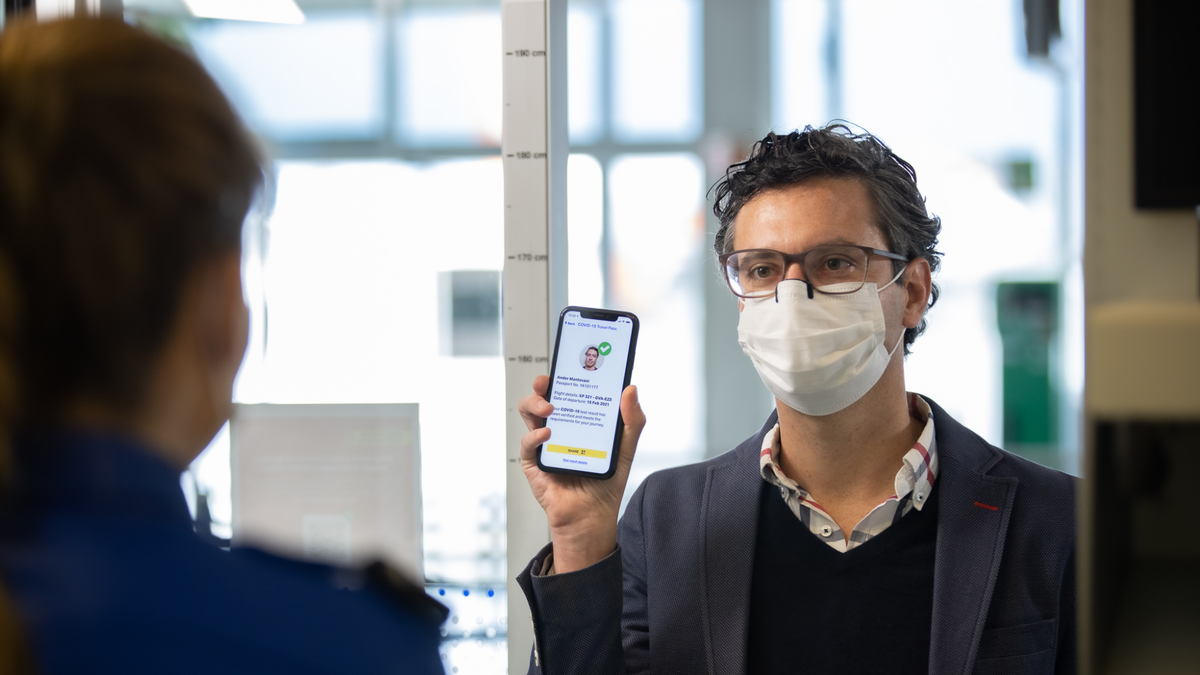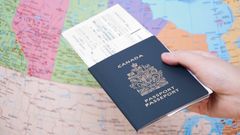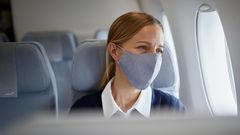Vaccine passports aren’t getting the free pass many expected
So-called vaccination passports which show proof of vaccination have become a point of contention.

As the world reopens, many countries and companies see so-called vaccine passports – certificates or digital cards testifying to the apparent low-risk status of their holders – as the new golden ticket to travel, although it remains a totally unproven concept.
The International Air Transport Association, which represents 290 carriers worldwide, estimates the industry could lose US$95 billion in cash in 2021 after already suffering the worst year on record.
So airlines have supported a number of tech solutions to verify passengers’ Covid vaccination or testing results, such as the IATA Travel Pass app, the AOKpass from French travel-security company International SOS, and the CommonPass, which is being developed by a Swiss nonprofit and the World Economic Forum.
A lack of standards could hinder such efforts.
Good idea, poor execution
“There has been a lot of advocacy, but the execution has been sorely lacking,” says Jeffrey Goh, who heads the Star Alliance of 26 carriers including Air China, Lufthansa, Singapore Airlines, and United Airlines.
A single set of standards for vaccine passes needs to be agreed to at the Group of Seven or Group of 20 level, Goh says, because vaccine passports represent “a policy choice for rekindling the economy.”
Singapore Airlines has begun a trial of IATA’s app, as has Qatar Airways. TUI, the world’s biggest tour operator, says vaccine passports will be key to resuscitating its business.
P&O Cruises has stipulated that no one can board its ships this summer without proof of vaccination, while Norwegian Cruise Lines plans to resume cruising from U.S. ports starting July 4 and will require vaccinations of guests and crew, the company said.
In the U.S., American Airlines has signed on with the VeriFly app being rolled out by biometric software company Daon. United has developed its own in-house platform, Travel Ready, which will allow passengers bound for certain destinations to upload vaccination records starting in early April.
A passport for more than travel
Once established in the travel sector, such passes could hold the key to the reopening of wider society, advocates say, allowing business meetings and conventions as well as gatherings at sports events and concerts.
Hyatt Hotels on March 9 announced it was exploring the use of VeriFly to help guests attend meetings at its properties. Ultimately some gyms, bars, restaurants, and even shops could also rely on the new vaccination documents to help patrons gain easier access.
Yet the case for handing the newly inoculated pass holders their old life back is far from universally accepted.
None of the available shots is 100% effective, meaning travelers with vaccine passports could in theory continue to spread the virus in crowded resorts.
Moreover, some vaccines, such as Russia’s Sputnik V, have not been cleared in many other parts of the world, raising the possibility that administrators of the Covid passports may have to make thorny medical determinations on which vaccines are effective enough to allow safe passage - even though health professionals haven’t settled that debate.
More fundamental are questions surrounding the fairness of vaccine passports, which would inevitably favor the inhabitants of richer nations over poorer ones where the distribution of shots has barely begun.
And vaccine passports would initially open up travel to a cohort of the elderly and middle-aged that have been prioritized for inoculation, leaving younger people in effective travel curfew while their parents and grandparents jet off to warmer climes.
Concerns over privacy
However, the U.S. government has declared it won’t issue so-called vaccine passports, White House Press Secretary Jen Psaki declared this week.
“The government is not now, nor will we be, supporting a system that requires Americans to carry a credential,” Psaki told reporters at the White House on Tuesday.
“There will be no federal vaccinations database and no federal mandate requiring everyone to obtain a single vaccination credential.”
The administration wants to protect Americans’ privacy and doesn’t want vaccine passports “used against people unfairly,” Psaki said.
Some businesses and colleges are pushing for people to show proof of vaccination – before, say, boarding cruise ships, entering stadiums, or returning to campus – as a way to safely resume pre-pandemic operations.
The White House has previously said any such efforts should be led by the private and not-for-profit sectors.
UK, EU go their own way
There’s sharp debate on the issue in the U.K. and other countries. Prime Minister Boris Johnson is on course for a battle with members of Parliament over plans to introduce vaccine passports as part of opening up services.
In that country, so-called Covid-status certificates – based on proof of a vaccine, a negative test or immunity for those who have recovered from the virus – could eventually eliminate the need for testing of audiences at live events and passengers heading on international trips, under government plans.
The U.K. aims to permit international leisure trips starting as early as May 17, and many travel-dependent nations are desperate to snag British vacationers once restrictions are lifted.
The reaction to Britain’s announcement of a road map for resuming travel starting in mid-May suggests there’s certainly burgeoning demand, with TUI reporting a sixfold jump in reservations to Greece, Spain, and Turkey overnight on the news and U.K. discount airline EasyJet saying ticket sales have quadrupled.
Rifts over the role of vaccine passes in helping the world recover from the coronavirus crisis have been especially apparent within the European Union.
Nations in the sunnier south are desperate to revive tourism just as others farther north fret over the consequences of permitting travel, in a continent where the virus has hit hard and vaccine distribution remains painfully slow in large parts.
A booster for Asian tourism
On March 17 the EU gave the go-ahead to its own passport, a “Digital Green Certificate,” but some key questions persist, including when the passport will be available (an internal memo has suggested in three months) and how long the full reopening of borders will take under a proposed tiered phase-in.
Those hurdles suggest countries such as Cyprus, Greece, and Spain may need to go ahead with plans to admit tourists via bilateral pacts if they’re to make the most of the summer season.
The pace of the return of visitors from China will also be a huge factor for Asian tourism.
Totaling 155 million outbound tourists in 2019, Chinese are among the biggest foreign visitors to Japan, Thailand, and Vietnam, as well as key customers of luxury retailers in cities as far afield as Paris and Rome.
International visitors who want to enter China could face some vaccine nationalism: China in March said it would ease entry requirements for foreigners who’ve been inoculated with a Covid vaccine produced in China. No such vaccines have yet been authorized by U.S. health officials.
This article is published under license from Bloomberg Media: the original article can be viewed here





